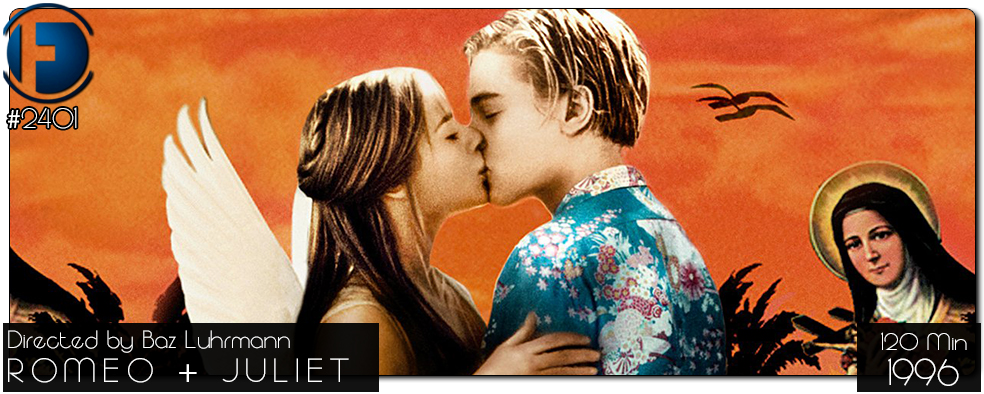Movie Review – Romeo + Juliet
Principal Cast : Leonardo DiCaprio, Claire Danes, Harold Perrineau, Brian Dennehy, Paul Sorvino, Pete Postlethwaite, Christina Pickles, Diane Verona, Paul Rudd, Miriam Margolyes, Dash Mihok, Jesse Bradford, Zak Orth, Jamie Kennedy, John Leguizamo, Vincent Laresca, Vondie Curtis-Hall, M Emmet Walsh, Quindon Tarver, Edwina Moore.
Synopsis: Shakespeare’s famous play is updated to the hip modern suburb of Verona still retaining its original dialogue.
********
It’s easy to forget just how much Baz Luhrmann’s hyper-kinetic modern remake of Shakespeare’s classic romantic play impacted popular culture back in 1996. Rising magazine-cover pretty-boy Leonardo DiCaprio became a household name, Claire Danes had her breakout big-screen lead role after supporting in the Winona Ryder Little Women adaptation two years earlier, and one of the most popular soundtrack releases of the year paved the way for a resurgence of feelgood disco and love anthems. Romeo + Juliet had an absolutely stacked cast around DiCaprio and Danes, including a powerhouse Harold Perrineau (later of The Matrix fame), John Leguizamo, an ageless Paul Rudd, Jamie Kennedy and a fabulous Miriam Margolyes. With Jill Bilcock’s visceral and sensual editing, Donald McAlpine’s bright cinematography and a terrific written adaptation of the Bard’s play, the film is a potent mix of young love and death smothered in absolute tragedy that suddenly made Shakespeare accessible to younger audiences, as well as countless hours of radio airplay and a million young uterus’ contracting as DiCaprio, floppy long hair and all, gazes adoringly at the camera.
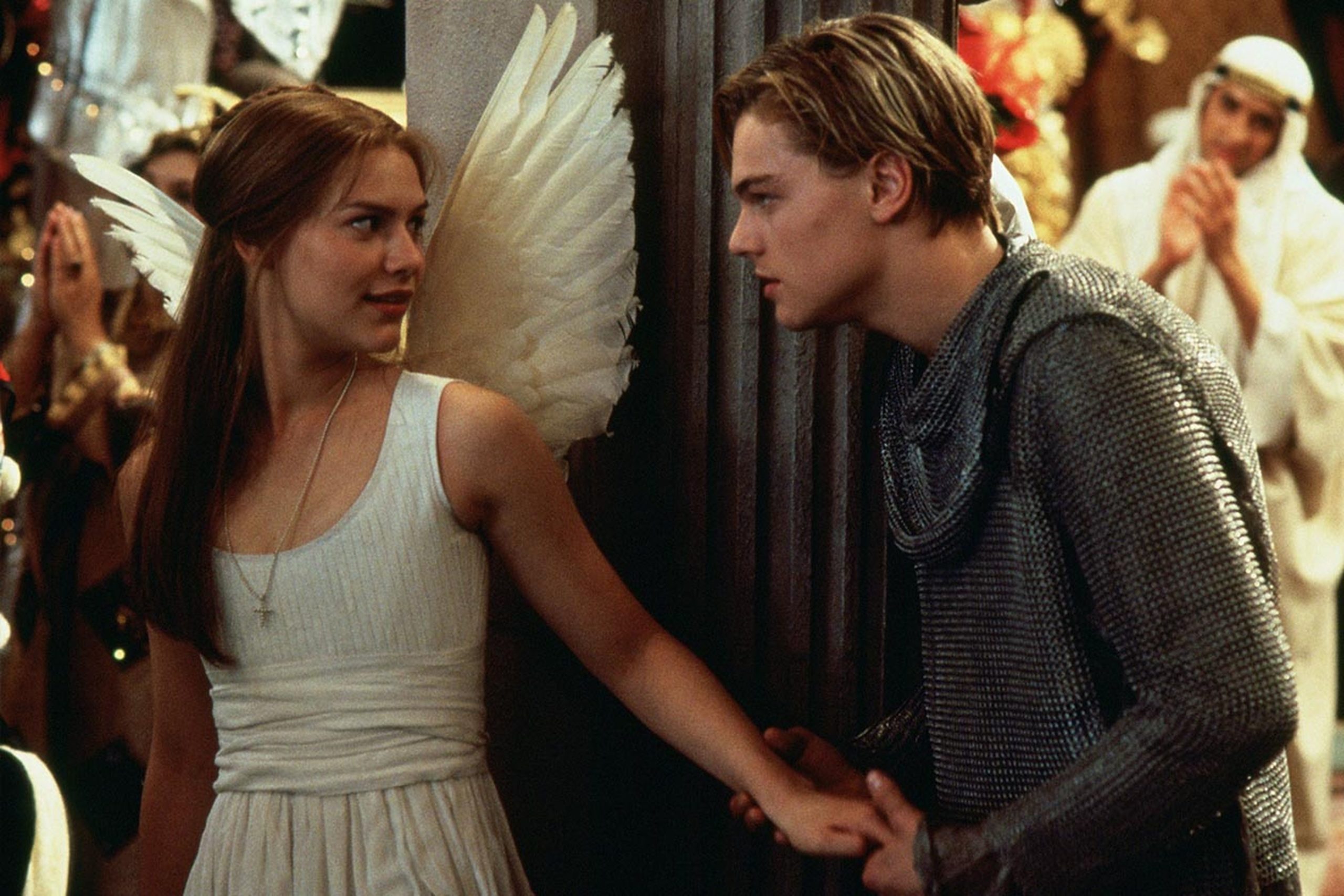
Romeo + Juliet is set in the contemporary, vibrant world of Verona Beach. The Montague and Capulet families are reimagined as warring business empires, with their feud spilling into the streets in explosive confrontations. Against this backdrop, Romeo Montague (Leonardo DiCaprio) and Juliet Capulet (Claire Danes) meet at a lavish party and fall instantly in love, their passion transcending the animosity of their families. Despite their efforts to be together, a series of tragic misunderstandings and violent clashes—spurred by the fiery Tybalt (John Leguizamo) and the loyal Mercutio (Harold Perrineau)—culminate in a heart-breaking conclusion. Using Shakespeare’s original dialogue alongside dazzling visuals, a pulsating soundtrack, and frenetic editing, Luhrmann crafts a vivid, hyper-stylised interpretation of the timeless tale of love and loss.
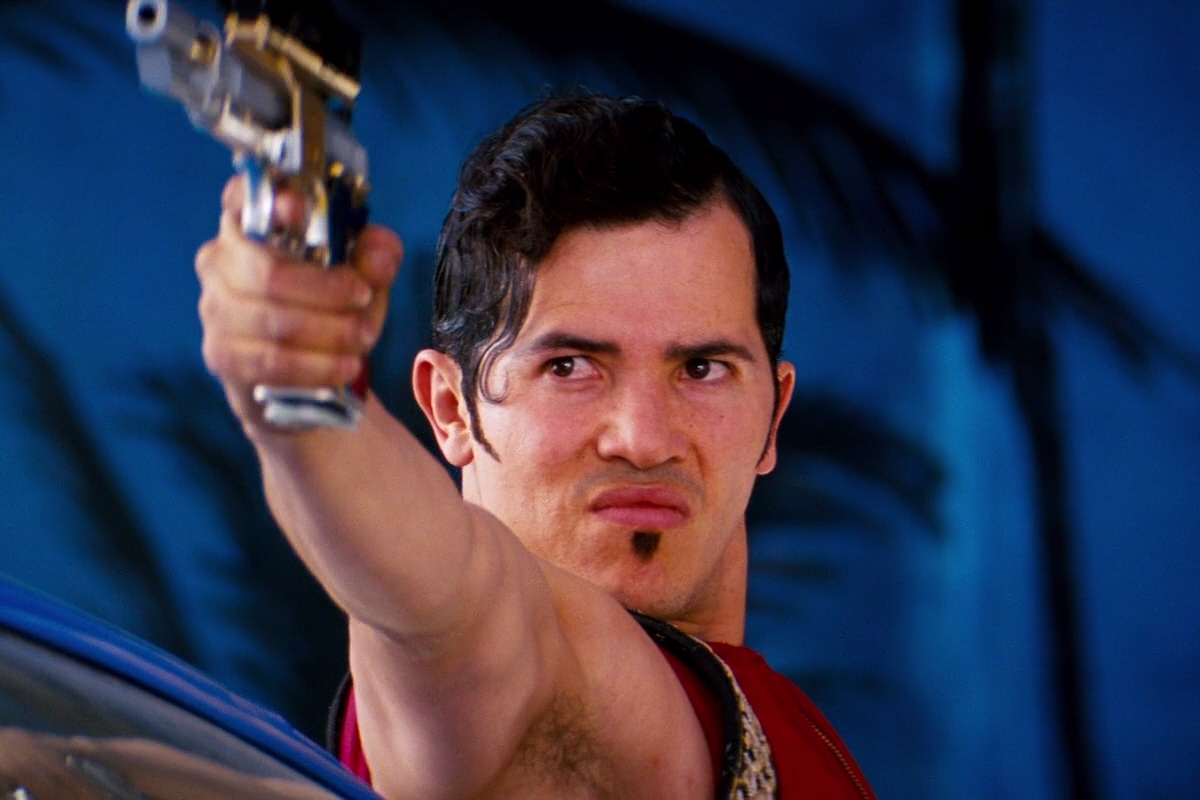
The 90’s were a great time to be a William Shakespeare fan. Hollywood continued to draw from the Bard’s well with numerous screen adaptations throughout the decade, perhaps none more defining than the triple-punch of Kenneth Branagh’s 70mm epic version of Hamlet, the Best Picture-winning Gwyneth Paltrow film Shakespeare In Love, and this, Baz Lurhmann’s hyperbolic revisionist take on the classic romantic tragedy, Romeo + Juliet. Adapting the classic play and updating it to a more modern setting, and casting dreamboat actor Leonardo DiCaprio as Romeo, Luhrmann and his production company were on a hot streak – off the back of cult darling Strictly Ballroom, Luhrmann approached 20th Century Fox about his next project being the famous tragedy, and in giving the text a unique slant, immediately drew the interest of the studio. Luhrmann and co-writer Craig Pearce, who would go on to work on all of the director’s subsequent films excepting Australia, reset the story in modern day America, using gangland mafioso imagery – guns instead of swords, etc – to pit both the Montagues and Capulets against each other in a beachside showdown that sets in motion the events depicted in the film.
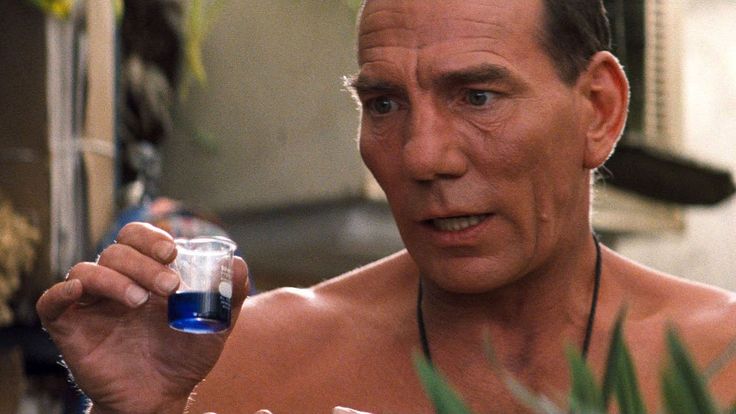
The film’s frantic energy and relatively guerrilla style filming techniques, often using hand-held cameras and edited by the astounding Jill Bilcock, the film crackles at a maddeningly breathless pace and, against all the odds, turns Shakespeare’s dialogue from turgid, ye olde-timey boredom into jarring, meaningful living dialogue. Sure, Luhrmann has changed several aspects of Shakespeare’s text in order to mould his movie adaptation, and purists will snigger at the lack of canonical truth to the production, but what one can’t deny is just how mesmerising and engaging the film is for a play written some four centuries earlier. Making Shakespeare fucking cool for teenagers was a minor miracle in itself, giving surly teachers a bit of a breather as their classes could now engage with the story in vivid technicolour rather than comparatively flavourless schoolroom narrations. And indeed, the film is exceptionally fucking cool. The costuming, the beachside setting, the humid summer climate of Miami-bound Capulets and Montagues, the frenetic editing and directorial flourishes, not to mention the rat-a-tat dialogue delivery, have made Romeo + Juliet arguably the most profoundly effective film adaptation of Shakespeare in living memory, if not ever. I would argue no other adaptation of the Bard’s work has ever had the cross-cultural impact and pop resonance as this one. It helps that the soundtrack selections boast a string of absolute bangers, making revisiting this film either a nostalgic trip or a revelation of entertainment.
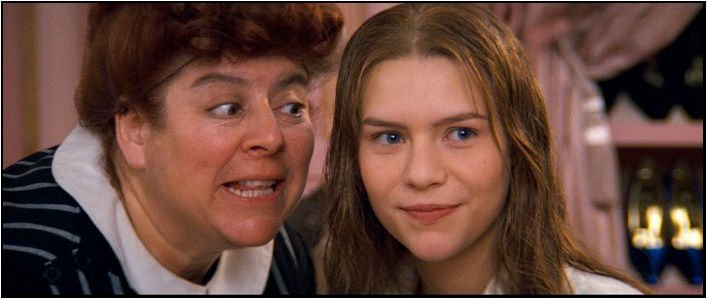
It goes without saying that the film wouldn’t have the same impact were it not for its two stars, DiCaprio and Danes. Both of them are simply gorgeous, and have a chemistry that ignites the screen with incendiary heat. Danes is supremely virginal, making the seduction of her by DiCaprio all the more salacious, and their romance is immediately embraced by the viewer if for nothing else than seeing them cavort and make doe-eyes at each other all the time. Both of them also bring a genuine truth to their dialogue too, both young actors inhabiting the realism Luhrmann demanded of the script as a real-world language, and it was hypnotic to watch the whole cast, in all honesty. John Leguizamo is ferocious as Tybalt, Juliet’s cousin, while Harold Perrineau is equally energetic as the hot-headed Mercutio, accompanied by the perpetually confused Sampson, played by Jamie Kennedy in a bizarre, off-the-wall casting decision. Screen legends like Brian Dennehy, Pete Postlethwaite and Paul Sorvino command the screen as the patriarchal roles of Romeo’s father, Father Laurence and Juliet’s father respectively, while Miriam Margolyes has a delightful turn as Juliet’s long-suffering Nurse, both protecting her and spurring her on with her infatuation with Romeo. The whole cast get into the story and sink their teeth into Luhrmann’s dynamic direction, going for broke and making even the silliest lines and craziest ideas work.
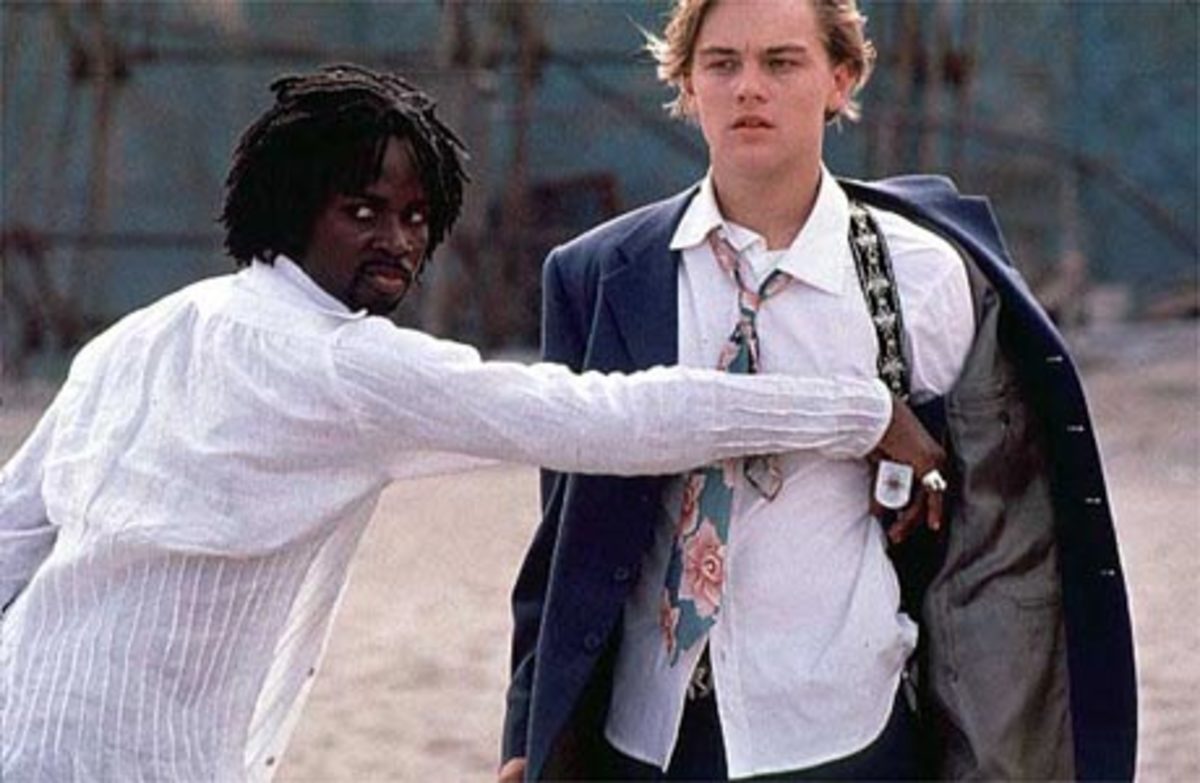
Romeo +Juliet follows the same basic narrative arc as Shakespeare’s text, translates it into easy-to-understand bite-sized pieces and adrenalizes it with an infusion of incredible camerawork, and don’t-fucking-argue editing from Jill Bilcock. Backed by a tremendously ear-wormy soundtrack and the lustrously attractive DiCaprio and Danes, both of whom quite literally melt the screen with their heated performances, Baz Luhrmann’s adaptation is indeed one for the ages – so long as you’re able to accept some of the changes to the original text. Luhrmann’s film predates Peter Jackson’s Lord of The Rings by some years, but the similarities in adapting well-known literature are evident; so long as you maintain the essence and soul of the original author’s intent, and establish an inner truth to the material, audiences will go along for the ride. Romeo + Juliet is a firecracker of a movie, a pulsating, energised, raucous rollercoaster of heightened emotion, frenzied battles, and a histrionic romance for the ages. What a marvellous piece of entertainment.

